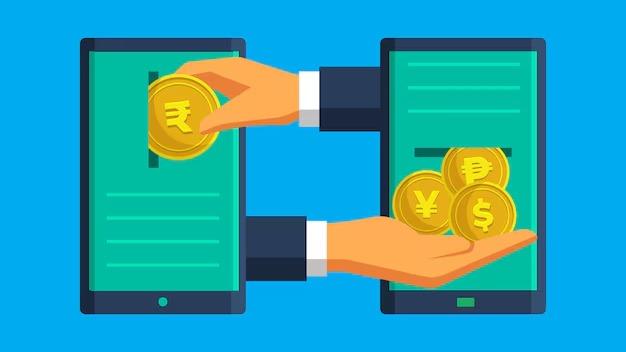MUMBAI: Indian firms are opting for cross-currency swaps to convert part of their debt into the euro or Japanese yen in order to trim borrowing costs, said bankers. They anticipate a sharper fall in interest rates of these two currencies instead of the dollar. While some are converting their rupee debt into the euro or yen, others are converting their dollar debt. With the easing of rates by the European Central Bank, the borrowing cost is expected to be reduced by 150-200 basis points over a few months, said bankers.
Cross-currency swaps are derivative structures that allow companies to convert loan principal, interest repayments, or both, from one currency to another, helping manage interest rates and forex risk.
“People are moving to yen as its rate of interest is closer to zero. Also, the pricing of loans is better,” said a head of treasury at a state-owned bank.
Moreover, expectations of dollar strengthening further have also prompted Indian firms to opt for cross-currency pairs other than USD-INR. The dollar strengthened 0.16% to 0.894 against the Swiss franc, hovering near its highest level since July. Against the yen, the dollar strengthened 0.31% to 154.12, after rising as high as 154.48 for the first time since November 26.
“Euro interest rates will go down due to the slowdown in the Euro Zone, while dollar interest rates may not fall significantly, particularly if Trump imposes tariffs. So, people are switching to these swaps,” said Anil Kumar Bhansali, head of treasury at Finrex Treasury.
ECB president Christine Lagarde hinted at a bigger 50 basis point rate cut to buffer the euro zone economy. On December 12, the ECB cut interest rates for the fourth time this year and kept the door open to more easing as the economy is dragged down by political instability in the region and the threat of a fresh US trade war.
As uncertainty looms in both domestic and global markets regarding the trajectory of the American greenback going forward, the dollar hedging cost has increased for Indian corporates. Currency hedging is an attempt to reduce the effects of changes in the exchange rate on the value of investments.
The dollar has been reaping the benefits of Donald Trump’s victory in the US presidential elections, which sent the currency to its highest level since November 26. With the dollar scaling at an all-time high, the euro has fallen to a one-year low, and the rupee has been touching fresh lows. Usually, when the dollar gains momentum, other currencies essentially depreciate. Consequently, countries that have dollar-denominated debt become less creditworthy as it makes it harder for them to purchase the US currency, said bankers.
“Cross-currency swaps have increased over a period of time. From Indian corporates’ point of view, the dollar hedging cost has increased in recent times; therefore, they are preferring other currencies,” said a trader with a foreign bank.
Source: The Financial Express

 Slowdown In Q2 Is A ‘Temporary Blip’, Growth To Pick Up: FM
Slowdown In Q2 Is A ‘Temporary Blip’, Growth To Pick Up: FM 